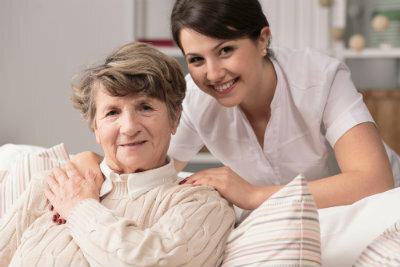Honoring Family Caregivers


Honoring Family Caregivers
This year on National Caregivers Day, February 17th, we acknowledge the caring individuals who dedicate countless hours providing compassionate care to their senior loved ones.
In the United States, 44 million people —about one in five American adults—act as unpaid, family caregivers.
Day and especially night, caregivers make meaningful contributions to help maintain the well-being of the senior they care for. They provide assistance through a variety of services—meal preparation, hygiene, housekeeping, shopping, transportation, medication, companionship, and financial support to name a few.

Informal caregivers act as the unsung heroes of a senior’s care team. Caregivers become personal advocates and care coordinators for their loved ones— communicating with medical professionals, performing difficult nursing tasks, and navigating the health care system.
Despite their important role, most family caregivers do not receive the training, preparation, or ongoing support they need.
The National Family Caregiver Support Program (NFCSP), established in 2000, provides support and assistance to family caregivers so they can care for their loved ones at home for as long as possible. Caregivers can access counseling, training, respite care, and supplemental services through the Administration on Aging website.
Through the loving care they provide, caregivers are able to form a close bond with their frail family member. Caregivers often gain a better understanding of their family member’s medical condition and experience a sense of relief from knowing their loved one is well cared for.
While providing care for a family member can be a very rewarding personal experience for a caregiver, it can take a serious toll on the person’s career, family life, financial situation, quality of life, and overall health. Caregivers can become over-stressed and exhausted or experience an increased risk of depression or excessive use of alcohol, tobacco, and other drugs. They are also more likely to have a chronic illness such as heart disease or obesity. Caregiver burnout is a common cause of hospitalization of the frail elderly and has been shown to be a factor in elder abuse cases.
“In order to continually provide high quality care, caregivers must first focus on their own self-care,” says Dr. Noah Marco, chief medical officer of the Jewish Home. “By regularly practicing self-care activities such as maintaining a balanced diet, exercising regularly, engaging in social activity, getting enough sleep, and making a yearly visit to a doctor, caregivers can enhance their physical, mental, and emotional health, allowing them to better serve their loved ones for many years to come. The third law in the classic novel House of God by Samuel Shem was 'At a cardiac arrest, the first procedure was to take your own pulse.' The rule is also appropriate for people providing care to their family members."
To all caregivers— thank you for your commitment to providing compassion and care to those who need it most.